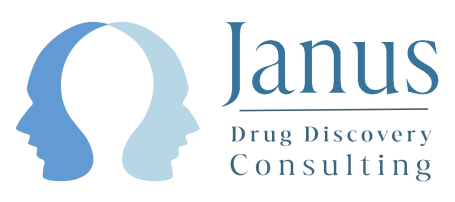
Dr Ian Churcher MA, DPhil
With over 25 years drug discovery experience from a range of leadership roles across biotech & pharma, Ian brings an unparalleled breadth of knowledge, insight and perspective gained from working across a diverse range of projects, therapy areas and modalities.
Wide breadth of experience
Range of leadership experience including company level strategy-setting, pioneering of new areas, building & leading high performing teams, collaborations and project level leadership

Definition & delivery of R&D strategies as CSO and scientific lead
Leadership of R&D functions within companies to define strategic R&D plan and building teams to deliver on priorities as key part of C-suite team. Key interface with board members to communicate R&D vision and progress.

Internationally renowned scientific thought leader in the rapidly growing field of Targeted Protein Degradation (TPD)
A pioneer of the field of application of TPD and induced-proximity in drug discovery from 2012, and has seen the field mature and take on new directions with the potential to deliver new medicines using the benefits of TPD.

Extensive experience of successfully securing new investment to advance company progress
Through extensive interactions with the investment community via VCs, corporates and pharma partners, resulting in inward investment in multiple biotechs of $100M+

Setting up and delivering successful pharma-biotech collaborations
With experience of both biotech-side and pharma-side collaboration deal negotiations, diligence and delivery, provided scientific leadership to multiple, successful biotech-pharma collaborations

To download a one page overview of Janus Drug Discovery Consulting, please click here
Why work with Janus Drug Discovery Consulting?
Unique insight and perspective gained from diverse experience

A thought leader in Targeted Protein Degradation
As leader of the Protein degradation Discovery Performance Unit within GSK from 2012, Ian and his team were pioneers of the application of TPD and induced proximity ideas in drug discovery. Through a collaboration with Professor Craig Crews (Yale) & Professor Alessio Ciulli (U Dundee), Ian and his team published a landmark paper in Nature Chemical Biology in 2015, now cited over 1000 times, which showcased, for the first time, the potential for drug-like PROTACs to give highly potent target degradation. This publication, along with others around the same time from Jay Bradner and Alessio Ciulli, fired the starting gun on the current explosion of interest in TPD and other induced-proximity-based therapeutics. Although many of these bifunctional molecules have properties well outside those usually associated with development of successful drugs, Ian and his teams have helped develop extensive knowledge of how to introduce suitable properties including high cell efficacy, oral availability and even CNS penetration into these structurally unusual therapeutics.
Through his role at GSK and, more recently, as CSO at Amphista, Ian has maintained his position as a thought leader in the TPD field, regularly invited to give plenary presentations at international conferences and author invited articles.
Use of artificial intelligence (AI) in drug discovery
During his time as SVP of drug discovery at BenevolentAI (2017-2020), Ian oversaw the creation and advancement of a portfolio of therapeutic projects using a wide range of machine learning (ML) and artificial intelligence tools. Working closely with Benevolent’s large team of machine learning experts, data scientists, bioinformaticians, software developers & cheminformaticians Ian and the R&D team developed a range of AI tools and applied them to significant drug discovery challenges including target selection, molecule optimisation and patient stratification.
At a time where AI is increasingly being applied in healthcare and therapeutic discovery, it’s important to focus the application of ML methods to address those questions where the available data is best suited to answer. The “rules” of successful drug discovery are not defined in a way to train many AI systems and with vast amounts of, often conflicting, scientific data available, great judgement must be exercised in the application and interpretation of AI methods to solve complex biological questions.
AI methods will undoubtedly help us discover therapies but they must be used thoughtfully by experienced drug discoverers for maximum impact.


Target selection and prioritisation across therapy areas including oncology, neuroscience, immunology & others
With his strong biological background, Ian has overseen biological drug target selection and prioritisation exercises across many groups throughout his career in almost all therapy areas to allow creation and advancement of therapeutic portfolios to meet the specific needs of a range of organisations.
Selecting a therapeutic target is arguably the most important decision a drug discovery project will ever make so it should be undertaken to balance many factors including: defining the addressable clinical population, assessing the strength of (often genetic) evidence implicating target modulation in therapeutic benefit, understanding the tractability of modulating the target and defining a practical path to generate efficacy and safety data in order to advance the project.
Building investor relationships
Even the best scientific ideas and data need to be communicated in a way to excite and highlight their potential to win the support of others, including investors. Through investment rounds at GSK, Benevolent and Amphista, Ian has provided leadership & insight to create and articulate scientific vision with the investor community, securing significant rounds of funding to allow accelerated company growth and team expansion on multiple occasions.
The key to a successful pitch is often focusing on key data and unique benefits of a given approach relative to others in, frequently crowded, fast-moving areas of science and technology. Being able to articulate these advantages and also to see them in other opportunities allows the best opportunities to be matched with the right investors to allow their further growth.


Successful collaborations
Successful collaborations, often between biotech and pharma or academic leaders, are the lifeblood that allows innovation and capital to flow throughout the industry. Ian has been involved in the negotiation, establishment and delivery of a number of successful collaborations both from a pharma perspective and also when leading biotech R&D functions.
Successful collaborations must be built on the right structure where both sides bring their own unique expertise or resource to projects of joint interest but also allow both sides to retain what they need in terms of exclusivity or IP rights to allow the collaboration to fit within their wider business objectives.
Similarly, when up and running, both sides of a collaboration should work closely together towards agreed goals, modifying plans as needed and recognising that when collaborations are successful, both sides win.
Small molecule drug discovery
Ian’s background in chemistry and early training as a medicinal chemist including involvement in multiple projects reaching development, allows him to design molecules and analyse complex datasets to simultaneously balance multiple parameters including biological efficacy, suitable pharmacokinetics & in vivo profiles as well as good safety & selectivity in order to optimise towards clinical candidates with the right profile to develop. During his time at GSK, Ian took on the leadership of the fragment-based drug discovery (FBDD) chemistry team (in collaboration with Astex Pharmaceuticals) and is highly experienced in advancing projects based on x-ray and other biophysical assay data
.This broad training has allowed Ian to advance projects using a wide diversty of molecules and approaches well beyond the traditional paradigm of small molecule inhibitors of enzymes. A willingness to set aside dogma, try things which may initially seem unlikely and always be alert to the surprising or unexpected observation has allowed Ian's projects to flourish and identify new directions and opportunities.

We need your consent to load the translations
We use a third-party service to translate the website content that may collect data about your activity. Please review the details in the privacy policy and accept the service to view the translations.

